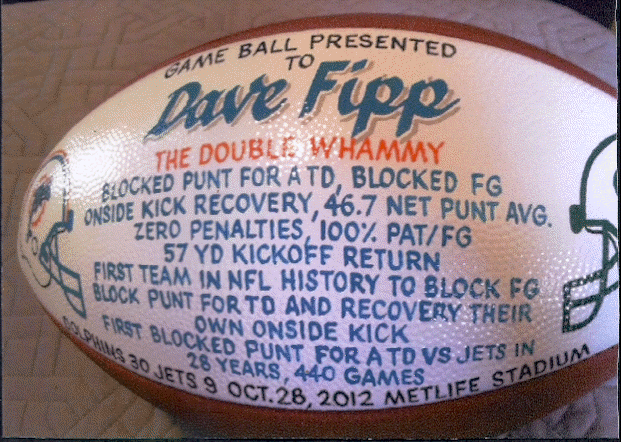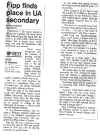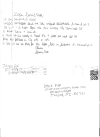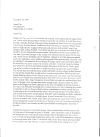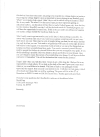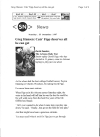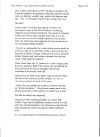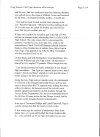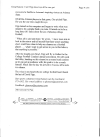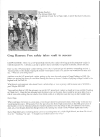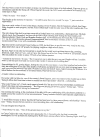Dave Fipp is naturally curious.
When he was in junior high, Fipp was
flipping through a Field & Stream magazine and couldn't take
his eyes off of the ads in the back.
“One of them was for raising your own
chickens in an incubator,” he told The Athletic. “Buy it for
50 bucks, and you can raise chickens.”
Another was for home-brewing beer. Fipp
didn't drink but was intrigued by the process. He convinced his
parents to let him try it and told them he'd give the beer to
his dad. Fipp's mom took him to a restaurant where they gathered
used beer bottles. They cleaned them out and went through the
entire process once. That was enough for him. He just wanted to
try it out.
Fifteen years later, Fipp was living in
the Bay Area, and his neighbor was brewing beer at home. He
remembered the ad in the magazine and the fun he'd had as a kid
and became intrigued once again.
“I’ve always been really curious
about the process of things — how things are made, how they
work, can you figure it out?” Fipp said.
“Now obviously, the whole craft brew
industry is exploding. This was before that or the early stages
of all that. Now it’s probably a whole lot more interesting
than it used to be.”
Fipp has been the Eagles' special teams
coach since 2013. In October, the team website ran a 4-minute,
35-second video of him showing viewers how to brew beer.
“I make wine. I keep bees. I write
children's books,” Fipp said at the beginning of the video.
“But today, I'm going to show you how I make beer.”
The coaching industry glorifies the
football-obsessed — those who say they have no time for
anything outside the game. There's no questioning Fipp's
commitment. Those who have worked alongside him rave about his
work ethic. And the results speak for themselves. The Eagles have
finished first, 10th and second in special-teams performance
the past three seasons, according to Football Outsiders.
Fipp is one of the best special teams
coaches in the NFL. But he's not afraid to admit he has other
interests.
“I hear guys say, ‘It’s all
football. My whole life is football.’ And I’m like, ‘I
could never be like that,'” he said. “I’m all football
when it’s time for football. But when there’s not enough
keeping me busy with football, when we’re in the offseason,
then I need to find something else because I can’t sit in the
house and relax.
“I don’t know whether that’s
unique or not. I also think there’s a lot of people who say,
‘My life’s all football’ because they think that sounds
good on the outside. I’m not afraid to say that I’ve got a
lot of interests and a lot of things that keep me interested.
I’ve got no problem with that.”
The home brewing led him down a rabbit
hole of sorts. Fipp began to read about mead, an alcoholic drink
made from fermented honey and water. He decided he wanted to try
making it as well, but the process requires a lot of honey —
about 10 pounds, Fipp said.
His initial plan was to purchase the
honey. Fipp found an apiary in South Jersey. His wife grew
up on a farm where they had almonds that were pollinated by
bees. He had heard stories from his father-in-law about how it
all worked. So he decided he'd keep bees at the house and go
straight to the source for the honey he needed.
“At the end of the day, now my wife
takes all the honey and gives it all out,” Fipp said. “She
bottles it all up. So there’s nothing left. So I’ve made
mead, but I’ve had to buy the honey for the mead. We have a
handful of hives, and beekeeping works well with football
because you harvest the honey right before the season starts
with training camp. Then during the winter months, there’s
just not a lot you do with them. And then come spring, you do a
little bit of maintenance. That’s when the hives are building
up. And that’s the offseason. So it works hand in hand and
allows me to do it. There’s not a ton of work to it. But
it’s definitely interesting.”
Fipp and his wife, Jenny, have three
kids — daughters Ashlee and Lilly and son Tyler.
“My son will get out there with the
little beekeeping suit on,” he said. “They’ll go out
there. They’re probably not afraid enough of them, which is
not good. But they enjoy it. It’s educational. They see how it
all works. When we harvest the honey, we’ll take the frames
off the hive, and then we’ll spin them in a machine. So
they’re part of all the process, and they enjoy it.”
The research on mead led him to wine.
Grapes instead of honey, he explained.
But Fipp wasn't a huge fan of
wine-making. He was glad he tried it but desires more immediate
results.
“All of it’s the challenge of,
‘Can you actually do this? Can you make it? Can you figure out
how it works?’” he said. “And the whole learning from that
and having another experience being able to check something else
off the box, for me, is really the gist of all of it.
“I’ve only learned the things that
I want to learn. That’s the big difference between this and
school. I get to choose the subject.”
Dave Fipp is creative.
As a kid growing up in San Diego, he
did not like school. The environment annoyed him — having to
sit quietly in a classroom while one person talked and everyone
else listened. It didn't help that Fipp had a twin brother who
was always performing better than him academically.
“I love him to death. The guy’s
awesome. I look up to him in a million ways,” Fipp said.
“But one challenge I had with him was that school came so easy
for him. School was difficult for me. And so it was probably
even more frustrating because here’s a guy — same age, same
parents, same house, same family, I see how much he studies. He
gets an A, and I get a D. It was like, ‘Oh wait a minute
here.’ So yeah, I’d say it was certainly frustrating. I
struggled early on.”
Fipp needed a teacher who was willing
to go the extra mile to get him excited and connect with him. He
found one in Rey Hernandez — a middle school Spanish teacher
who also happened to coach football at La Jolla High School.
The conversations began with sports and
football. Soon enough, Fipp was learning Spanish.
“He was teaching my least favorite
subject, and he made it fun and enjoyable,” Fipp said. “So
it really changed my perspective that maybe there’s a
different way to teach and get things across. This guy was
special that way.”
That philosophy has carried over to
Fipp's coaching. Along with Hernandez, the other biggest
coaching influence he's had is Al Everest. Fipp was the
assistant special teams coach for the San Francisco 49ers, and
one thing he took away from Everest was that the last meeting of
the week should not be about Xs and Os. It should be about
getting players to feel good about themselves.
So when Fipp got to Philadelphia and
was in charge of running the special teams meetings, he decided
to put together a “Fight Night” slideshow. He picks a
specific matchup for each special teams phase and shows it to
the players. Merrill Reese provides the narration based off of a
script from Fipp. The most epic meeting that punter Donnie Jones
can remember came during the Chip Kelly era.
“At the end, it shows whatever team
we’re playing and says, ‘You got a problem!’” Jones
explained. “So for a couple of years, that problem was [former
tight end] James Casey. James would get so fired up over it. We
had a malfunction with the projector in the big room so we had
to go in the offensive meeting room. When we put him up there,
he jumped up, tore his shirt off, ran out of the room and then
came back around. Everybody was throwing water bottles at the
screen.”
Jaylen Watkins said that more recently,
the players went crazy for a Fipp stunt involving Sproles.
“He went through the whole slideshow,
acted like it was over, and everybody stood up to leave,”
Watkins recalled. “Then Merrill said, ‘Wait a minute!' He
named the opposing team and said, ‘You have a problem!' And
Sproles’ face pops up and everybody goes crazy, throwing
bottles, taking their shoes off and throwing them.”
Fipp's commitment to finding
alternative methods to get his message across extends to his
life at home as a dad.
He found himself constantly lecturing
his kids about brushing their teeth and using good manners. They
didn't listen — which didn't surprise him. Fipp was the same
way as a kid. So he decided to try and disguise his messages in
children's books that he authored. Fipp loves Dr. Seuss so he
decided to make the books rhyme. One is titled, “A letter to
my child: Dream great.”
Learn from the mistakes you made
and things will be okay. I love you and I trust you more than
words can say.
“At the end of the day, it was really
to get a message across to my kids without lecturing them all
the time in a way that hopefully people like me would understand
more,” he said. “None of that stuff’s been published.
I’ve written a bunch of these things, and they’re just
sitting there. Hopefully one day, maybe I’ll have a chance to
spend more time with it and do something with it.
“Ultimately, I’ve read them to my
kids. But they went in one ear and out the other. Maybe one day,
some other kid will listen.”

(Photo
by Drew Hallowell/Philadelphia Eagles/Getty Images)
Dave Fipp is loyal.
Hernandez was working with 10 or 12
at-risk middle school kids in San Diego when Fipp was coaching
with the Miami Dolphins. The kids needed to get their grades up
to be eligible for football as freshmen, but they were
struggling.
Hernandez thought Fipp could help. He
asked Fipp to send an email to the students offering some words
of encouragement. But Fipp had another idea.
“He said, ‘You know what, coach?
I’m going to send you these goal-setting worksheets that
I’ve put together. I want you to tell them to fill them out
for me, make copies of them, send them back to me, and then
I’ll get back to them,” Hernandez recalled.
The worksheets were two or three pages.
Fipp asked the kids to draw themselves achieving their goals. He
wanted them to visualize their own successes.
Then he followed up. Fipp contacted
them on a quarterly basis to offer encouragement or tell them
they needed to step it up. According to Hernandez, at the end of
the year, every single kid whom Dave had reached out to earned
eligibility. In the summer, Fipp met the kids face-to-face,
congratulated them and ran them through special-teams drills.
“I think what they saw is there was
someone that’s in the profession that has a special interest
in them,” Hernandez said. “Part of it is they liked getting
an email back from David congratulating them on something. That
was a form of positive reinforcement.
“David was so instrumental in helping
me with those boys. But that’s David. That’s a side that
people don’t see sometimes.”
Everest said the loyalty was evident
when the two coached together in San Francisco.
“You couldn’t ask, draw up, write
up, a better person to have as your assistant. He’s a great
person. He does more than he’s asked to do,” Everett said.
“If anybody said something bad about
Al, Dave would say, ‘Hey, that’s bullsh*t.’ He’s always
been that way. I was lucky to be with Dave for two years.”
Dave Fipp is honest.
Running back Kenjon Barner remembers
struggling with kickoff returns during his first or second
season in Philadelphia. He went up to Fipp's office to find out
what the coach thought.
“I went upstairs to talk to him and
asked him what he thought,” Barner recalled. “He said,
‘You’re sh*tty.’ Just like that. I’m looking at him, and
he’s like, ‘Yeah, you’ve got to get better. You can be as
good as you want to be.’ He’s that type of coach. You can
respect that — a guy that shoots it straight, tells you
exactly how it is, doesn’t beat around the bush, doesn’t lie
to you. I went upstairs, and he told me how terrible I was.”
Kamu Grugier-Hill likes to joke around.
Fipp can be that way too, but he has a line he doesn't want
crossed when the team is trying to get its work in.
Grugier-Hill remembers a Thursday
practice where he had trouble identifying that line. Fipp helped
him out.
“One of the walkthroughs, I was a
little too loose, and he got after me pretty good,”
Grugier-Hill said. “Yelled at me, screamed at me in front of
the whole team. He definitely can be very serious if we’re not
handling our business.
“He knows how to use each player
individually and how to touch them individually and get them
motivated. So we play a lot for him. It’s exciting to make a
play and he’s right there in your face jumping on you. He’s
just such a motivational guy. He’ll joke around with you, but
if you’re not doing your job, he’ll rip into you as well.
He’s one of the best coaches I’ve ever had.”
Coaching special teams can be
challenging — especially during training camp. It's a bunch of
players who are fighting for their football lives, unsure of
whether they're going to make the roster or have to look for
another line of work.
Fipp recognizes that. Players say he's
brilliant at toeing the line between telling them the truth but
letting them know he's in their corner.
“He’s by far the realest coach
I’ve ever been around,” said Watkins. “As cliched as that
sounds, he’s somebody that if you don’t have thick skin,
he’s not the guy you want to ask how you’re doing or where
you’re at on the depth chart. If you don’t want to hear the
truth, you don’t want to go to Fipp.
“But that’s a good thing because
you’re allowed to go and assess where you’re at. He’s
going to tell you the truth, and you have to get better. He has
a lot of respect for that in the locker room. A lot of the
bottom-of-the-depth-chart guys, you ask him, he’s going to
tell you what you need to get better at.”
Added Barner, “He gets guys to buy
in. Guys love playing for him. Guys love going out and putting
everything on the line for him because they know at the end of
the day when Fipp goes upstairs, he’s doing the same for them.
He’s going to fight for every player in that room, every
player that he believes in. When you have a coach like that,
you’ll do anything for him.”
Dave Fipp is private.
Most of the players had no clue about
his interests outside of football until they saw the beer-making
video. Someone set it up to play when Fipp walked in for a
recent special-teams meeting.
Fipp initially declined to be
interviewed for this story. He said he's happy to discuss his
players. They are the reason he coaches. But he doesn't want to
talk about himself. Once he was told that readers might be
interested in his non-football life, he finally agreed.
Fipp has been asked often if he thinks
more special teams coordinators should get opportunities to
become head coaches.
“I would never say that about myself,
but I do think that there’s a number of qualified coaches
around this league who coach special teams that I think do a
great job,” he said. “They do have a unique background,
skill set. They’ve worked with the whole team, they’ve
communicated with a lot of different people, they make a lot of
the gameday decisions the same way. I think there’s a lot of
talented coaches who are coaching that position in this league
that should get that opportunity.”
His core special teams philosophy comes
from Everest. The first step is making sure players know their
alignments and assignments. Step two is teaching and drilling
them on how to win their one-on-one battles. And step three is
allowing them to cut it loose on gamedays.
“You don’t see him yelling or
ranting at players on Sunday,” Everest said. “It’s their
day. You get six days a week to coach. And they get one day a
week to go let it all out. If you need to make adjustments, you
make them. You treat them like men and try to get the best out
of them.”
Fipp is used to working for what he
wants. He didn't play much as a junior in high school, and
Hernandez had to convince him to come back as a senior. He
earned a starting safety job and later walked on at Arizona.
Kelly knew Fipp from his New Hampshire
days when Fipp was coaching at Holy Cross. Kelly brought him to
Philadelphia, and Doug Pederson (at the urging of Jeffrey Lurie)
retained him. That move has paid off. Special teams has been a
big under-the-radar factor in the team's 8-1 start. The Eagles
have lost Sproles (their best returner), Chris Maragos (their
captain) and Caleb Sturgis (their kicker) to injuries. But
through 10 weeks, the
team ranks sixth in special teams DVOA.
Whether Fipp eventually gets a shot to
be a head coach or not is uncertain. For now, he'll continue to
challenge himself with interests that pique his curiosity. And
the Eagles' special teams will continue to be one of the best
units in the NFL.
“I definitely think if ever given the
opportunity, Fipp can definitely be a great head coach,”
Barner said. “Guys would love to play for him. He can push
guys past their limits, make you realize things about yourself
that you didn’t know were capable of or that you didn’t know
about yourself.
“I love that dude. He’s a special
dude. He’s always looked out for me.”
Top
photo: Drew Hallowell/Getty Images
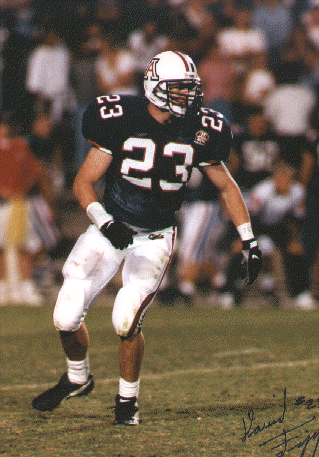


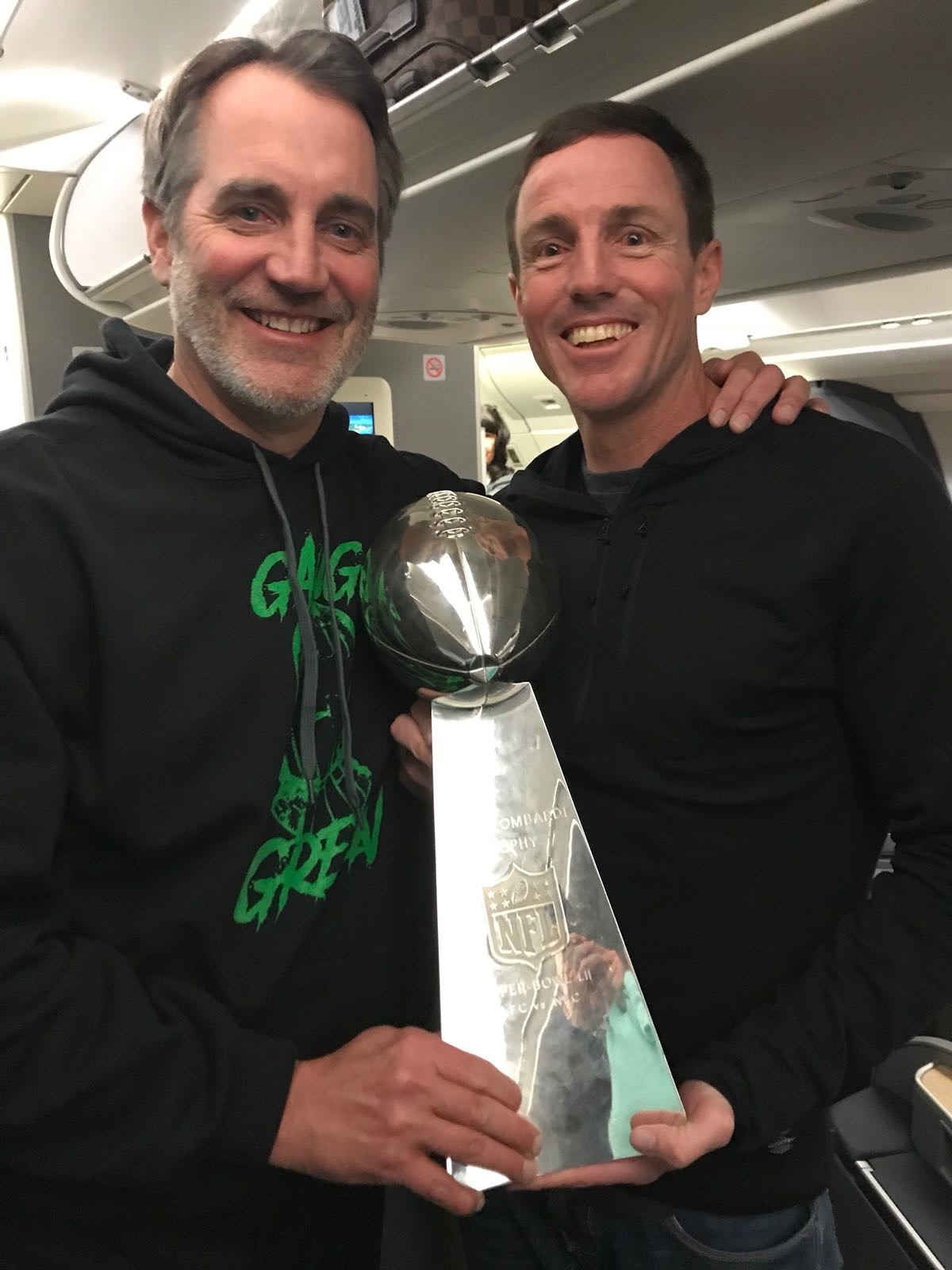


/cdn3.vox-cdn.com/uploads/chorus_image/image/51904319/240356.0.jpeg)
/cdn0.vox-cdn.com/uploads/chorus_asset/file/7496535/222342.jpg)
/cdn0.vox-cdn.com/uploads/chorus_asset/file/7496611/usa_today_9449020.jpg)


